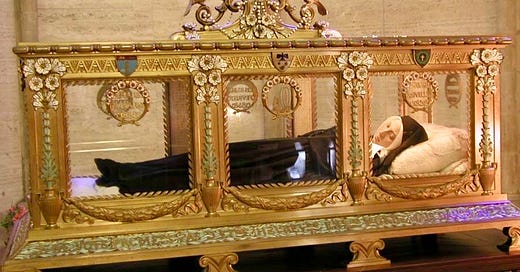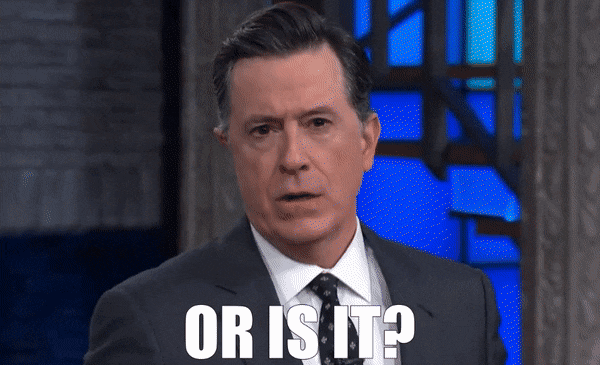Today is a day of endings, both of Acts and John. But it’s also a beginning of sorts for Amelia. Tonight, she’ll be confirmed! She’s obviously a little younger than the usual age in America today, but you can actually became a confirmed Catholic at any age. In some places, babies are confirmed at the same time they’re baptized!
We met with our regional bishop last Sunday, and he’s approved with our unusual circumstances. He’s impressed that Amelia has even studied the whole catechism, thanks to Father Mike’s Catechism in a Year podcast, which we listened to on the way to and from school last year.
I only just found out that a parent can’t be the candidate’s sponsor, but luckily, my mom (Amelia’s nana) is in town! She’ll be Amelia’s sponsor.
And if you’re wondering, Amelia’s confirmation saint will be Bernadette of Lourdes.
Reading 1
Acts 28:16-20, 30-31
When he entered Rome, Paul was allowed to live by himself, with the soldier who was guarding him.
Three days later he called together the leaders of the Jews. When they had gathered he said to them, "My brothers, although I had done nothing against our people or our ancestral customs, I was handed over to the Romans as a prisoner from Jerusalem. After trying my case the Romans wanted to release me, because they found nothing against me deserving the death penalty. But when the Jews objected, I was obliged to appeal to Caesar, even though I had no accusation to make against my own nation. This is the reason, then, I have requested to see you and to speak with you, for it is on account of the hope of Israel that I wear these chains."
He remained for two full years in his lodgings. He received all who came to him, and with complete assurance and without hindrance he proclaimed the Kingdom of God and taught about the Lord Jesus Christ.
This is the end of Acts. We just read the beginning on the Ascension, which includes the Lord’s command: “you will be my witnesses in Jerusalem, throughout Judea and Samaria, and to the ends of the earth.”1
So here Paul is, at the… center of the world? At least, the center of the known world, ruled by the largest, most powerful empire in history. Paul himself wasn’t able to reach the farthest reaches of the Roman Empire personally, but from his position, he was able to ensure the message would spread.
Responsorial Psalm
Ps 11:4, 5 and 7
R. The just will gaze on your face, O Lord.
The LORD is in his holy temple;
the LORD's throne is in heaven.
His eyes behold,
his searching glance is on mankind.
R. The just will gaze on your face, O Lord.
The LORD searches the just and the wicked;
the lover of violence he hates.
For the LORD is just, he loves just deeds;
the upright shall see his face.
R. The just will gaze on your face, O Lord.
God watches over us. But what’s even better is, we can look up at Him.
In context, this is a song of someone fleeing from the wicked, hiding in the mountains. No food, no shelter, no friends. Yet what does he do? He turns to God, trusts that God will help him in his situation.
Alleluia
Jn 16:7, 13
R. Alleluia, alleluia.
I will send to you the Spirit of truth, says the Lord;
he will guide you to all truth.
R. Alleluia, alleluia.
Like the Psalmist, we will always need guidance.
Gospel
Jn 21:20-25
Peter turned and saw the disciple following whom Jesus loved, the one who had also reclined upon his chest during the supper and had said, "Master, who is the one who will betray you?"
When Peter saw him, he said to Jesus, "Lord, what about him?"
Jesus said to him, "What if I want him to remain until I come? What concern is it of yours? You follow me."
So the word spread among the brothers that that disciple would not die. But Jesus had not told him that he would not die, just "What if I want him to remain until I come? What concern is it of yours?"
It is this disciple who testifies to these things and has written them, and we know that his testimony is true. There are also many other things that Jesus did, but if these were to be described individually, I do not think the whole world would contain the books that would be written.
And this is the end of the Gospel of John!
Well, yes, it’s the end. But it may not be “of John,” in the sense that we moderns think of crediting writing. It’s possible that this Gospel was written by a disciple of John’s, who finally wrote down what John had been teaching orally about Jesus.2
In that case, the closing lines have a little bit of irony to them. The disciples believed Jesus prophesied that John wouldn’t die before the Second Coming, and yet, John did die. This caused some to lose faith in the whole Christian project.
That’s why this writing clarifies the proper interpretation of Jesus’ words. He didn’t say John would remain until He comes again; he said “what if.”
Proper interpretation is key. If our interpretation of scripture doesn’t line up with reality, we must consider the possibility that our interpretation is wrong, rather than scripture.





